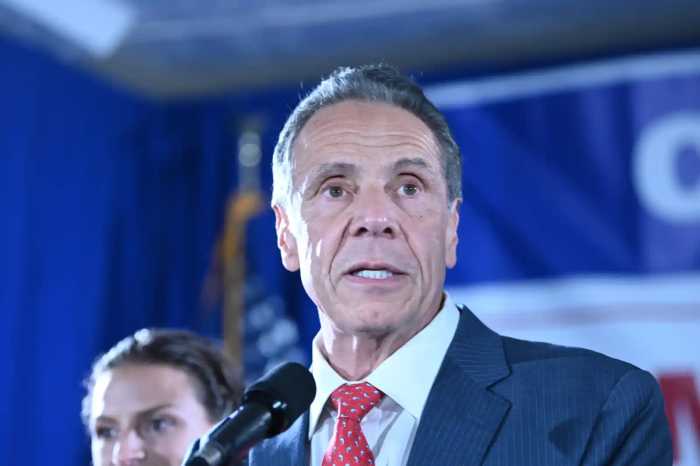Nassau County To Opt Out Of Legal Marijuana

Last week, Nassau County Executive Laura Curran’s Task Force on Marijuana Legalization and Regulation spoke at Farmingdale Village Hall as it released its final report in regard to the potential consequences associated with the legalization and sale of recreational marijuana in New York State. The legalization is currently being debated in Albany. Should the New York State Cannabis Regulation and Taxation Act be passed in its current form, the task force is in favor of having Nassau County opt out of all cannabis-related commercial businesses.
“Based on the evidence and input I’ve received from the task force, our key stakeholders and what I’ve heard from residents, I have decided that now is not the time for the legalized sale of marijuana in Nassau County,” said Curran. “What I heard from our law enforcement, our school and education professionals, health officials, and our towns and villages was clear—this isn’t something we’re ready to implement.”
The report that the task force released identified a variety of potential public safety and health concerns that would need to be addressed prior to Nassau County’s participation in a legalized cannabis market. In its public safety study, the report notes that since 2003, Nassau County has experienced a steady decrease in overall crime. There are concerns that there could be an uptick in crime with the legalization of recreational marijuana.
There are also concerns of illegal cultivation of cannabis on public lands and in New York’s 22 national parks. Colorado legalized marijuana in 2012, and the report states that between 2012 and 2017, Colorado saw a 73 percent increase in the number of seized plants on public lands.
“Months ago, the county executive asked me to be part of a task force on the possibility of legalized recreational marijuana,” said Nassau County Police Commissioner Patrick Ryder. “As commissioner of police, I had many concerns, as I was and still am strongly opposed to its legalization. At the county executive’s request, I was asked to work with the task force to prepare a fair and impartial report, and as professionals, we did just that. The committee worked exhaustedly preparing the data, which included attending town hall meetings and the report shows both the negative and positive impacts on legalization. Due to the overwhelming amount of negative impact at this time, we are recommending to the county executive that we opt out.”
Another major concern in the report is impaired driving. The study notes that traffic deaths in Colorado involving drivers who tested positive for marijuana increased from 55 in 2013 to 139 in 2017. Washington, which legalized marijuana in 2012, saw 303 drivers between 2010 and 2014 who had detectable THC in their blood.
The conclusion of the report states that NYS would be one of the largest regulated cannabis markets in the country.
“What is certain is that, should cannabis be legalized, there will be unanticipated impacts on our communities, constituents and public safety,” the report states.
Nassau County Executive Laura Curran announced the formation of the Nassau County Task Force on Marijuana Legalization and Regulation on Jan. 10 of this year. Its establishment was in response to pending state legislation regarding the legalization and sale of recreational cannabis in New York. The task force is responsible for examining the possible consequences the legalization of cannabis may have on the county’s public safety, public health, business development and communities.
The task force is co-chaired by Nassau County Police Commissioner Patrick Ryder and Legislator Joshua Lafazan. Eight subcommittees comprise the task force, including: public safety; legislation and regulation; public health; treatment and recovery; education and prevention; taxation and finance; community impact; and small business impact.

































